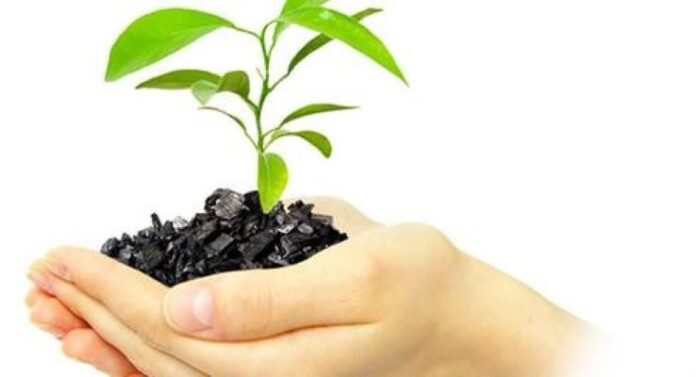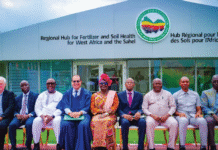Farmers around the world are looking for low- or no-cost materials to increase agricultural output and reduce the use of fertilizers derived from fossil fuels.
One material used in Kenya is biochar.
When mixed with soil, biochar increases water and nutrient retention, porosity and microbial activity, reduces acidity and helps hold carbon. Over time, biochar can help increase output and productivity.
Even more, biochar sequesters carbon dioxide in the soil.
Biochar is simple to make. A metal drum with few openings in the top is filled with dry corn cobs. The small number of openings reduces oxygen in the drum, which guarantees most material remains in the drum. Cold water is periodically poured on the outside wall of the drum to determine when the burning process is complete.
In another method, a shallow trench is dug in the ground and dry corn cobs piled into it. The cobs are set on fire and the trench is covered by a metal sheet to reduce oxygen and manage the fire.
Biochar is removed from the drum or trench, bagged and stored until planting time.
Combined with organic fertilizer, family farmers in Kenya have been able to eliminate chemical fertilizers—and their costs. This increases margins even before the organic materials enhance output. And, as mentioned above, biochar increases water retention, which reduces water usage. This is especially important as climate change intensifies extreme weather, including heat and drought.
This ancient technique has even caught the attention of large companies in the US. JP Morgan Chase, Microsoft and others have invested in biochar operations to earn credits used to offset their carbon emissions. The biochar is used by vineyards in California, farmers in the Midwest and other growers. While still relatively small—the US produces about 100,000 tons of biochar a year—carbon credits have made production very profitable. The industry is expected to grow rapidly in the years ahead.
World Neighbors is the international development organization that works with family farmers in Kenya and other countries to implement low-cost innovations to increase output and income and enhance climate resilience.









